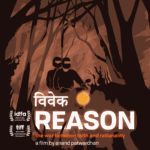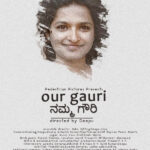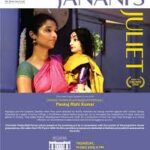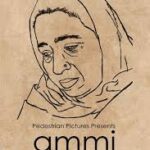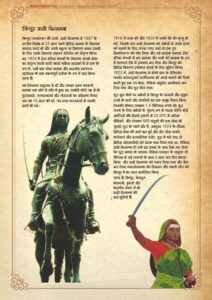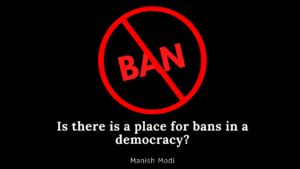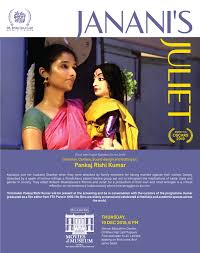
In 1990 through the efforts of filmmakers like Mani Kaul and Director of Films Division, Shri Vijay Chandra, the Bombay International Film Festival was launched. One of its main talking points was that it did away with the requirement of censor certificates. BIFF which later became MIFF was seen as a celebration of the art of documentary filmmaking and art and censorship clearly did not mix.
Many Indian films critical of government policies and ideologies were not only selected in MIFF but even won awards. Among them were films like Anand Patwardhan’s In Memory of Friends critical of the government’s role during anti-Sikh riots and sectarian violence in Punjab and Ranjan Palit and Vasudha Joshi’s Voices of Baliapal highlighting protests against a missile base in Orissa.
In 2003 a BJP government worried about films made on the Gujarat carnage of 2002, introduced a censor requirement for Indian films at MIFF for the very first time but filmmakers successfully mounted a popular protest festival called Vikalp. The censorship clause at MIFF was then withdrawn and stayed off the agenda. But by 2016 it became increasingly clear that films critical of the ruling ideology would just not get selected in MIFF.
2020 MIFF marks a watershed in the absolute control exercised from Delhi over what is allowed at festivals. Two filmmakers, Pankaj Rishi Kumar whose Janani Juliet which won the top prize at the Kerala International Documentary Festival and Anand Patwardhan whose Reason/Vivek won the top prize at the world famous International Film Festival in Amsterdam (IDFA) filed a petition in the Bombay High Court asking the government to show cause as to why their films were rejected from all categories at MIFF. Both these films had officially qualified for the Oscars of 2020.
While the case has now been withdrawn due to technical reasons we are still gathering information on other acclaimed films left out of MIFF 2020. Some filmmakers will meet the press and screen short clips on the 28th. Details of some of the “rejected” films are:
1.
Reason/Vivek
Director, Camera, Editing: Anand Patwardhan
Duration: 218 minutes
Between 2013 and 2017 men on motorcycles shot dead four prominent Indian rationalists. Dr. Narendra Dabholkar, a fighter against blind faith, Comrade Govind Pansare, Professor M.M Kalburgi and journalist Gauri Lankesh. All were non-violent opponents of upper-caste, majoritarian supremacists.
Reason/Vivek is a chilling account of how murder and institutional controls are being applied to systematically dismantle secular democracy. India, which once aspired to Liberty, Egalité and Fraternity is in danger of becoming a dark mirror to nations whose own democratic institutions are compromised. And yet Reason refuses to die.
* Qualified for Oscars, 2020, Academy of Motion Picture, Art and Science, USA
https://www.hollywoodreporter.com/news/oscars-2020-159-films-will-compete-documentary-feature-1254179
* Best Feature Documentary, International Film Festival of Amsterdam (IDFA), Netherlands
https://variety.com/2018/film/festivals/idfa-awards-2018-the-jury-sees-reason-1203034904/
* Audience Award, Indian Film Festival
of Los Angeles (IFFLA), USA
https://www.nonfictionfilm.com/news/documentary-reason-wins-audience-award-at-indian-film-festival-of-los-angeles
Officially selection at other Film Festivals
Toronto International Film Festival, Sept. 2018, Canada (World Premiere) (https://www.tiff.net/tiff/reason/
True/False, Columbus, Missouri, USA
Art of the Real, Lincoln Center NYC, USA
Watchdocs Human Righs International Film Festival, Warsaw, Poland
FICUNAM International Film Festival, Mexico
Moscow International Film Festival, Russia
Sheffield, International. Film Festival UK
Sydney,International. Film Festival Australia
London Indian Film Festival
Kerala International Documentary Film Festival
Tasveer South Asian Film Festival, Seattle
Vancouver International Film Festival
Nuremberg Human Rights International Film Festival
Yamagata International Film Festival
Jean Rouch International Film Festival
Houston Museum of Art, USA
2.
Janani’s Juliet
Director, Camera: Pankaj Rishi Kumar
Duration: 53min
Kausalya lost her husband (Shankar), when they were attacked by her own family. They had married against their families wishes. Deeply disturbed by a spate of honor killings in India, Indianostrum, a Pondicherry based theatre group sets out to introspect the implications of caste, class and gender. They adapt Shakespeare’s ‘Romeo and Juliet’. What emerges in the process is a critical reflection and commentary of the contemporary Indian society where love struggles to survive.
* India’s Official entry to the 2020 Oscar’s
* Best Long Documentary IDSFFK, Trivandrum, India
* Best Film, Signs Film Festival, Thrissur, India
Officially selection at other Film Festivals
Kolkata Film Festival, India
Films South Asia, Kathmandu
Indian Film Festival of Bubhaneswar
Open Frame Film Festival: New Delhi, India
Madurai Film Festival, india
Auroville Film Festival, India
Kolkata People’s Film Festival, India
Chennai Film Festival, India
3.
Our Gauri
Director: Pradeep K P (Deepu)
Duration: 68 minutes
Gauri Lankesh was one of the Karnataka’s most prominent and fearless journalist. She was shot dead outside her house in Bengaluru on the night of 5th September, 2017. Gauri spoke out against communal forces in the Country and represented dissent and freedom of speech. The film is more than a personal tribute and follows her political journey, envisaging what she stood for and her struggle for communal harmony until her last breath. And her life story has become the history of Karnataka’s fight against right-wing communal forces.
4.
Ammi
Director: Sunil Kumar
Duration: 90 mts
This is one woman’s two-year fight for justice. Battered by the police, having been told by the myriad government agencies, investigating her son’s disappearance, that there are no leads, she still stands with conviction.
Since Najeeb’s disappearance on 15, October 2016 from the Jawaharlal Nehru University campus, New Delhi, there has been no progress in the investigations by the various investigating agencies. The ABVP – a right wing youth organisation were the agencies’ initial prime suspects. But it seems that it is easy to disappear someone when you are the youth wing of a right wing organisation in the time of a right wing government. The film attempts to track this historic movement that is changing the conversation on caste in India.
5.
We have not come here to die
Directed by Deepa Dhanraj
Duration: 98 mins
On January 17th 2016 a Dalit, Phd research scholar, and activist Rohith Vemula unable to bear the persecution from a partisan University administration and dominant caste Hindu supremacists hung himself in one of the most prestigious universities in India. His suicide note, which argued against the “value of a man being reduced to his immediate identity” galvanized student politics in India.
Over the last year thousands of students all over the country have broken the silence around their experiences of caste discrimination in Universities and have started a powerful anti-caste movement.
6.
‘Dilli Yadon ki Mehfil’ (Delhi, a gathering of memories)
Director: Yousuf Saeed
Duration 57 minutes
A film on the plural and syncretic history of Delhi based on interviews with 15 senior citizens and scholars. This was produced for Indira Gandhi National Centre for the Arts, New Delhi (a central govt. institution) in 2018. It has got a U certificate from CBFC (in 2018). It shows how Muslims, Hindus and Jains have co-existed in Delhi for centuries.
Yousuf had earlier participated in several MIFFs with my films (1998, 2000, 2008, 2012, 2018 etc.
7.
Birha/Absence
Director : Ekta Mittal
Duration: 80 minutes
In a faraway village called birha, missing people, mothers and tired lovers yearn to see beyond the mist. They meet each other in impenetrable silences and endless mourning. They curse the moon for witnessing their insomnias. birha situates itself in a season of waiting, climate of uncertainty: where only a loud screech can register distance between loved ones.
birha is the grief, agony and anguish of separation, derived from Punjabi Sufi Poetry. Guided by Shiv Kumar Batalvi’s birha poetry, the film captures the pain, lamentation and yearning caused by separation. The film searches for missing people, who left their homes to work in faraway cities, and still have not returned. The locations are not marked, characters are not named, birha situates itself in a season of waiting and a climate of uncertainty.
Official Selection, Busan International Film Festival, S.Korea 2018
Westlake International Documentary Festival, Glory of Documentary, China, 2018
Official Selection, International Documentary Festival, Amsterdam (IDFA), 2018
Official Selection, Doc Vision Programme, Sheffield Doc Festival, UK, 2019
Official Selection, International Competition, The Flaherty Film Festival, USA
Official Selection, Yamagata International Film Festival, Japan
Official Selection, Dharamshala International Film Festival, India
Official Selection, Chiayi International Art Documentary Film Festival (CIADFF).
8.
Citizen Nagar
Directed by Debolina Majumdar
Duration: 52 mins
What does it mean to be rendered invisible in a city that you had once claimed as your own? How does one choose between death at gunpoint or a slow poisonous death?
Zooming past the high-rises, grand shopping malls, hotels and restaurants; one is hit by a stench coming from a 75 feet high garbage dump. If one goes slightly further, along the sewage flow and factory smoke, one would reach Citizen Nagar. In Gujarat’s developmental model, it is Citizen Nagar, where the invisible citizens of the state reside. Built as a temporary refugee camp post the 2002 Gujarat carnage, the area is now a slum colony for the survivors of Naroda Patiya, who have been banished there to await justice and/or death. Seventeen years later, the film pieces together the lingering aftermath of the carnage that mark and unmark, make and unmake the lives of these people.
At a time when the Hindutva regime seeks to redefine the country as a Hindu nation by deleting all those that fail to fit their fascist agenda, this film chooses to see the ‘nation’ through the imagination of those very people whom the nation chooses to forget. It makes us interrogate the promises that we had once made to this ‘nation’, to ourselves, to each other.
9.
Coral Woman
Director: Priya Thuvassery
Duration: 52 mins
This will be a filmmaker’s journey with Uma, a certified scuba diver, exploring the underwater world & the threat to coral reefs of Gulf of Mannar, India. Born in a traditional family in Tamil Nadu 53 years old Uma, a homemaker, has been trying to bring attention to this alarming environmental issue through her paintings. It is, in fact, these corals that inspired Uma to learn how to swim, dive & paint in her 50s
Tulum World Environment Film Festival – Winner
Woodpeckerfilmfestival 2019 – Winner
NIFF awards, 2019 – Special Mention
International Kuala Lumpur Eco Film Festival 2019 – Finalist
Other official selections in Film Festivals
Chennai documentary film festival, 2019
IDSFFK, Kerala 2019
Stuttgart Film Festival, 2019 –
Lakeside film festival, CUSAT 2019
Matsalu Nature Film Festival, Estonia 2019
Indian Documentary Film Festival of Bhubaneswar(IDFFB), 2019
14th Tasveer South Asian Film Festival
2nd Pondicherry International Film Festival 2019
SiGNS 2019 festival
35th Ménigoute Festival, France 2019
Jio MAMI 21st Mumbai Film Festival 2019
Diorama International Film Festival 2019
DIALOGUES: Calcutta International LGBTQ Film and Video Festival, 2019
2019 London Eco Film Festival
International Underwater Film Festival Belgrade 2019
18th Dhaka International Film Festival (DIFF) 2020
7th Kolkata People’s Film Festival, 2020
Ekotopfilm – Envirofilm 2020 festival, Slovakia
Panchajanyam International Film Festival, 2020
2nd Women’s International Film Festival 2020 (WIFF)
10.
Shut up Sona
Director: Deepti Gupta
85 min
Shut up, Sona is a tongue-in-cheek take at a feisty female singer’s unrelenting fight for an equal space in modern day India, a country deeply uncomfortable with her emancipation. It is a closely observed telling of Sona’s uncomfortable relationship with her beloved country.
The 90 minute documentary explores the dichotomy of today’s India and the fate of the modern Indian woman. Sona is one of the pioneers of the #Metoo movement in Bollywood, campaigning intrepidly and playing an instrumental role in bringing down composer Anu Malik, against whom multiple women alleged sexual harassment.
Critics Prize –MAMI (Mumbai International Film Festival
Other Festivals
ROTTERDAM International Film Festival
Goteborg International Film Festival
11.
If She Built A Country
Maheen Mirza
Duration : 60 mins
About the film : Walking behind them, the film follows the stories of the brave adivasi women of Raigarh, Chhattisgarh as they struggle not only to save their lands and livelihoods, seeking justice for themselves, their communities and the generations to come after them, but also, as they reimagine a future for us all, asking one of the most brutally honest and pertinent questions of our times – what does development really mean?
For over a decade now, private and public mining corporations have been encroaching upon and digging up the coal-rich forested lands of North Chhattisgarh – sometimes by blatantly violating the law and at other times by circumventing it, but always, at the cost of lives of the most marginal of peoples. Entire villages have been displaced, bodies of whole populations polluted and whole generations dispossessed from what is rightfully theirs, all this while profits from the sale of coal are made. The true costs of production, however, have been borne by those who have both laboured for and resisted against the process of extraction – the women at the forefront of the struggle, into whose everyday lives the violence of this extraction is folded.
12.
Chai Darbari
Direction: Prateek Shekhar,
Duration: 29 mins
A search for ‘truth’ stumbles upon varied textures of conversations. Conversations carrying echoes from print, electronic, social media; redolent with the local atmosphere and the context of the city’s past. Since 1992 Ayodhya has been a crucial ground for electoral politics and debates. Unverified and politically motivated videos, circulated on an ever growing WhatsApp web, have complicated the issue a little more. These videos are one-way dialogic conversations, encoded with an us versus them subtext. Parallel to this, all arguments around Ayodhya overlook multiple lived realities of the residents. While these realities transmute into endless conversations over chai (tea) in Ayodhya, the nature of the discourse is significantly different in the cities. Chai Darbari is a small tapestry of a few such conversations.
13.
The Death of Us
Director: Vani Subramaniam
Duration: 76 minutes
The debate on death penalty is loud and impassioned. Instead of echoing that cacophony, The Death of Us, quietly reflects on a range of cases in which the death penalty was pronounced. Sometimes, ending in the execution of the convicted; sometimes in commutation to a life sentence; and sometimes to acquittal and release. Speaking to some who have been on death row, and others closely involved with the cases, we engage in complex conversations on crime and punishment, revenge and justice, popular rhetoric and personal experiences. Only to find ourselves confronted by larger ethical and moral questions across time and space.
14.
STAINS
Director: Rhea Mathews
‘Stains’ is a Short Fiction Film based on Manjula Padmanabhan’s short story of the same name. The film revolves around a couple from diverse cultural backgrounds, who are spending a weekend with the man’s mother for Onam. During the visit, the woman starts menstruating and stains her bedsheets. Her boyfriend’s mother’s extreme reaction to the event, his failure to stand up for her and in turn expecting her to adjust, results in a fraught environment. This conflict builds through the course of the visit, as she examines her own relationship with her blood and pain; while simultaneously examining her romantic relationship.
The film examines the portrayal of menstrual blood through the eyes of the people who bleed, those who assign discriminatory connotations to this blood; and in turn the medium of film and how it is used to represent blood and the relationships that surround it. It also provides a glimpse at urban relationships that struggle to exist in the dichotomy of individuality and tradition, wherein a woman attempts to define and reclaim her autonomy.
AWARDS:
Best Editing Student Fiction, National Short Film Festival 2019 – NFAI, Pune
Best Student Film (March-April) – Calcutta International Cult Film Festival
Best Director, Best Female Artist & Best Music Director – FEFKA Directors’ Union Short Film Fest – Kerala
Best Malayalam Short Feature 13th SiGNS FESTIVAL – Thrissur
Best National Film, Best Director, Best Editing, 2nd Vintage International Film Festival 2019, India – Shahu Smarak Bhavan, Dadara Chowk, Kolhapur
Best Student Film – 7th Woodpecker International Film Festival 2019 New Delhi
All information on rejected films and the honors they have won has not yet been received. We do know that Films Division selected 7 of their own films in the festival which is unprecedented in the history of MIFF.
Meanwhile we have received moral support in the form of open letters to MIFF from two award winning international filmmakers and former jurors at MIFF which is included below.
Signed and dated: 27 January 2020
Anand Patwardhan 9819882244, Pankaj Rishi Kumar 8169832715
Open letter from Mark Achbar – Head of Jury, MIFF 2014 and Golden Conch winner MIFF 1996 for “Manufacturing Consent” (Noam Chomsky)
This is from Mark Achbar, co-director and co-producer of Manufacturing Consent and The Corporation, the two most commercially successful feature documentaries to ever come out of Canada—the birthplace of the documentary. His films have garnered 56 awards and reached tens of millions of viewers worldwide. He wrote this:
Like Anand, I have also won a top prize at the International Documentary Festival of Amsterdam, the largest, and arguably most prestigious documentary film festival in the world, and I know first hand the global significance of this honour. IDFA receives 3,000 submissions each year, and rejects 2,700 of them. And out of that lucky 300 selected last year, REASON won the top prize over of all them. The world’s foremost filmmakers and critics judged it to be the creme de la creme. Festivals around the world look to IDFA’s prize winners and invite those films so that their audiences will not miss out on the best documentaries the world’s filmmakers have to offer.
You have to wonder then, why is REASON not good enough for MIFF? Anand Patwardan is one of the most respected documentary filmmakers in the world. REASON is a significant, highly accomplished work. Anand has received a lifetime achievement award at MIFF! While is not incumbent on MIFF to award REASON a prize, it certainly is MIFF’s responsibility to show the film and show it proudly. This exclusion is a terrible oversight, and an injustice both to Anand and MIFF’s audience. I implore MIFF’s programmers to reverse their decision and include REASON in this year’s program.
Open letter from Nicolas Philibert – Golden Conch Winner (In the Land of the Deaf) MIFF 1994 and Jury member, MIFF 2004
I have just learned with amazement, sadness and indignation that Reason, the latest film of the great filmmaker Anand Patwardan, had not been selected by the Mumbay International Film Festival. I don’t know the reasons that were put forward to dismiss this film, but I obviously can’t help thinking that it is a political decision.
Already in 2004, when I was part of the MIFF jury, I was struck by the mediocrity and the blandness of the documentaries that made up the competition. With my colleagues on the jury, curious to understand why, we had investigated a little and discovered that with one or two exceptions, all the films that had a political or social dimension had been excluded.
Today, I want to express my deep support and respect for Anand Patwardan. I regret that a film as important as Reason, which won the 2018 Grand Prix of the IDFA international competition unanimously, was the subject of such a discriminatory and absurd decision.
Since India flatters itself on being the largest democracy in the world, I think that MIFF would have everything to gain by breaking definitively from the practice of censorship, and by trusting the intelligence of spectators. Film festivals are made to open the eyes of spectators, not to muzzle the expression of the authors. Nicolas Philibert, Grand Prix at MIFF with In the Land of The Deaf
French version: Je viens d’apprendre avec stupeur, tristesse et indignation que Reason, le dernier film du grand cinéaste Anand Patwardan, n’avait pas été sélectionné par le MIFF. Je ne connais pas les raisons qui ont été invoquées pour écarter ce film, mais je ne peux évidemment pas m’empêcher de penser qu’il s’agit là d’une décision politique.
Déjà en 2004, alors que je faisais partie du jury du MIFF, j’avais été frappé par la médiocrité et la fadeur des documentaires qui constituaient la compétition. Avec mes collègues du jury, curieux d’en comprendre les raisons, nous avions un peu enquêté et découvert qu’à une ou deux exceptions près, tous les films qui avaient une dimension politique ou sociale avaient été écartés.
Je veux dire aujourd’hui mon profond soutien à Anand Patwardan, mon respect et mon amitié. Je déplore qu’un film aussi important que Reason, qui a obtenu en 2018 le Grand Prix de la compétition internationale de l’IDFA à l’unanimité, soit l’objet d’une décision aussi discriminatoire et absurde.
Puisque l’Inde se flatte d’être la plus grande démocratie du monde, je crois que le MIFF aurait tout à gagner à rompre définitivement avec la pratique de la censure, et à faire confiance à l’intelligence des spectateurs. Les festivals de cinéma sont faits pour ouvrir les yeux des spectateurs et non pour museler l’expression des auteurs.

